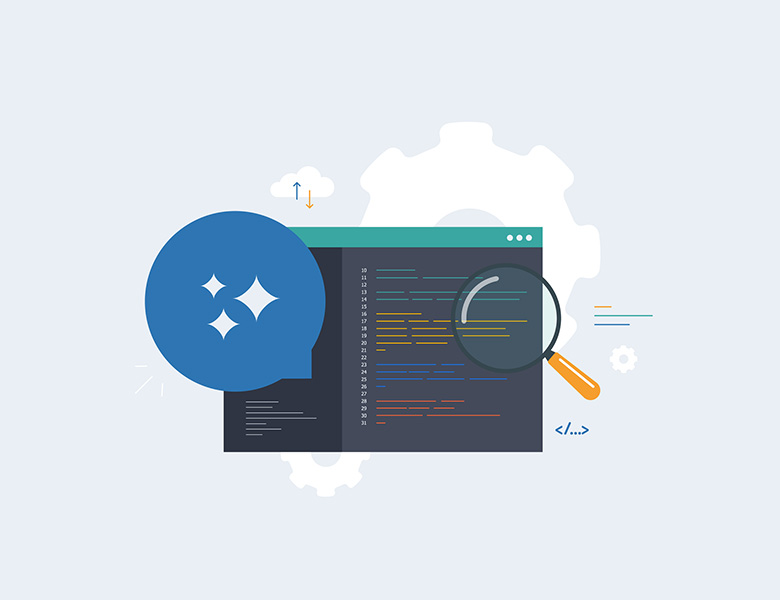Startups often have to compete with industry giants who have larger budgets, larger staff, and well-established reputations. However, artificial intelligence (AI) may have skewed the balance a little. AI enables startups to innovate, run more efficiently, and provide experiences that rival those of much larger companies.
However, it is important to keep this in perspective. AI isn't a surefire answer; it's just a tool that can help startups do what they're already doing well. AI can help speed up processes, make decisions better, and open up chances that didn't seem possible before if you're willing to put in the time and work.
In this article, we’ll examine how startups can use AI to compete effectively. From automating workflows to enhancing customer service, we’ll explore practical applications and considerations to help startups navigate this evolving landscape with focus and strategy.
Navigating the Middle Ground
With so many resources and a global reach, companies like Microsoft, Google, IBM and Nvidia look like they can't be beat. However, the truth is that these companies' size can work against them. They move slowly because they have a lot of control and strict rules. Small businesses, on the other hand, are quick to change direction and make choices.
AI allows you to make smarter, faster decisions—without the need for a massive team or budget. Unlike big corporations that focus on mass-scale operations, you can use AI to focus on what matters most to your business: your customers, your local market, and your unique offerings. The ability to implement AI quickly and start seeing results within days gives you an edge that large companies simply can’t match.
The Opportunity: What AI Brings to the Table
With artificial intelligence startups have a powerful tool they can use to compete in areas traditionally dominated by larger players. They can streamline operations, enhance customer experiences, and innovate faster while keeping costs manageable. Here’s how AI is leveling the playing field for startups and enabling them to stay competitive.
Streamlining Operations with Workflow Automation
One of AI's most important and immediate benefits is that it can automate workflows. When you're running a startup, you often have to do a lot of different things with little time and money. AI tools can make work easier by automating tasks that are done over and over, like entering data, making reports, and setting up schedules.
By reducing human error and speeding up processes, AI-powered workflow automation not only saves time but also increases overall productivity. For startups with lean teams, this is a crucial advantage, as it helps them operate efficiently without the need for large administrative staff.
Supply Chain Efficiency
AI can make a big difference in supply chain management, which is a key part of fields like logistics and e-commerce. AI-powered tools are helping startups figure out what customers will want, find the best delivery routes, and lower their costs. These tools use advanced algorithms to analyze data and identify patterns that can lead to more efficient supply chain management.
By improving delivery times, reducing fuel costs, and minimizing waste, AI-driven solutions allow startups to offer better service to their customers while keeping costs low. This is especially valuable for startups competing against larger companies with established supply chains.
Marketing Efforts
Another area where AI can help startups stand out is marketing. Many startups find it hard to compete with the huge marketing budgets of big companies in the same field, but AI tools are changing the game. Startups can use platforms like HubSpot and Salesforce Einstein to study how customers behave and make marketing campaigns that are very specific to each person.
These AI tools help companies guess what their customers want and give them experiences that are tailored to their tastes. Startups can build stronger relationships with their customers by using AI to look at data and guess what trends will happen. Startups can now get this level of personalization, which used to be only possible for big companies with lots of money.
Customer Service
Customer service is another area where AI is making a significant impact. Startups often don’t have the resources to staff large customer service teams, but AI-powered chatbots like provide instant, 24/7 support to customers. These chatbots can handle everything from answering frequently asked questions to troubleshooting technical issues, ensuring that customers receive prompt assistance at any time of day or night.
By offering exceptional customer service through AI, startups can enhance customer satisfaction and build loyalty without the need for large customer support teams. This not only improves the customer experience but also helps startups save on operational costs.
Product Innovation
AI is also driving product innovation in startups. Tools like Canva and Adobe Sensei make it easier for teams to design prototypes and marketing assets, while platforms like Mixpanel help analyze user behavior and provide insights into how products are being used. This data-driven approach enables startups to refine their offerings and prioritize features that customers actually want.
By using AI to gather and analyze customer feedback, startups can iterate on their products more quickly and effectively, ensuring that they are always meeting the evolving needs of their market.
AI in E-commerce
In the e-commerce sector, AI is opening up new possibilities that were once exclusive to larger players. From dynamic pricing to AI-powered search and recommendations, startups can now offer advanced features that enhance the shopping experience. AI-driven tools also allow startups to implement visual and voice-based shopping, providing customers with more personalized and engaging ways to shop.
With AI, startups can provide a level of sophistication in their e-commerce offerings that rivals that of larger companies, giving them a competitive advantage in a crowded market.
The Challenges: What Startups Need to Watch Out For
While AI offers great potential for startups, there are several challenges they must consider when implementing these tools into their business processes. The first challenge is realistic expectations. Startups should not focus on directly competing with industry giants. These companies have vast resources, teams, and infrastructure in place. Instead, the goal for most startups should be to maximize profitability and accelerate growth within their niche. AI can help achieve this by making operations more efficient, but it won’t level the playing field with larger corporations in every aspect.
The biggest mistake many small businesses make is trying to apply AI tools without a clear purpose or understanding of their needs.
For example, AI tools like sentiment analysis can help you understand how customers feel about your products in real time, allowing you to address issues before they escalate. Smart inventory systems can ensure you’re never overstocked or understocked, helping you save money and avoid waste. Dynamic pricing tools can help you adjust prices based on real-time demand, giving you a competitive edge over larger companies.
But, the key is to focus on your niche. Don’t try to replicate what big corporations are doing. Instead, use AI to make your business smarter and more efficient. Tailor your approach to your specific market and use AI to help you compete on your terms, not theirs.
Another important challenge is the pace of disruption. AI is a double-edged sword—it helps startups innovate faster, but it also enables larger companies to do the same. The speed at which big companies can now adopt AI-driven solutions means that any disruption startups aim to create might be quickly matched or outpaced by bigger players. For startups, this means focusing on smaller, more specific niches or areas that larger companies may overlook or be slow to adapt to.
Moreover, competition from other startups is intensifying. As AI makes it easier and cheaper to start a business, the number of new startups will likely increase. This means that startups aren’t just competing with big corporations, but also with a larger pool of entrepreneurs, many of whom will be using the same AI tools to innovate. In such an environment, differentiation and customer experience become even more critical.
Finally, resource constraints remain a challenge. While AI can help startups become more efficient, it still requires investment in technology and expertise. Many startups may not have the financial or technical resources to fully capitalize on AI’s potential. This is especially true for businesses without in-house AI specialists or those operating on tight budgets. However, AI platforms that are becoming more affordable and accessible can help mitigate this issue, but startups still need to be strategic about how they implement AI.
The Takeaway
AI is a long-term strategy that can help you scale smarter and more efficiently. As AI continues to evolve, its potential for small businesses will only grow. In the future, the cost of entry will continue to decrease, making it easier for small businesses to start and scale without the need for massive investments.
The future is moving towards smaller, more agile businesses that can leverage technology to their advantage. With AI, you don’t need to compete with the giants. Instead, you can carve out your own space, dominate your niche, and grow at your own pace. The smartest businesses will thrive, not necessarily the biggest ones.
By focusing on the right AI tools and understanding how to apply them to your specific needs, you can build a sustainable, profitable business. AI is your secret weapon for growth, use it wisely, and you’ll be able to outsmart the giants and lead your industry.
Transform Your Business and Achieve Success with Solwey
Solwey is your premier destination for custom software solutions right here in Austin, Texas. We're not just another software development agency; we're your partners in progress, dedicated to crafting tailor-made solutions that propel your business towards its goals.
At Solwey, we don't just build software; we engineer digital experiences. Our seasoned team of experts blends innovation with a deep understanding of technology to create solutions that are as unique as your business. Whether you're looking for cutting-edge ecommerce development or strategic custom software consulting, we've got you covered.
We take the time to understand your needs, ensuring that our solutions not only meet but exceed your expectations. With Solwey by your side, you'll have the guidance and support you need to thrive in the competitive marketplace.
If you're looking for an expert to help you integrate AI into your thriving business or funded startup get in touch with us today to learn more about how Solwey can help you unlock your full potential in the digital realm. Let's begin this journey together, towards success.





